Kontakt
Postanschrift: Schellingstraße 3, 80799 München
Telefon:
+49 (0)89 2180-3185
E-Mail:
juliane.prade-weiss@lmu.de
Sprechstunde: im SoSe 2025 nur nach Vereinbarung
Aktuelles
- Herbst/Winter 2024
Projektstart Forschungsnetzwerk
The Persistence of Evil:
Analyzing Long-Term Transmissions of Justifications for Mass Violence
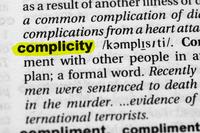 Complicity, Past and Present: Portrayals of Involvement in Mass Violence and Terror in Documentary Fiction
Complicity, Past and Present: Portrayals of Involvement in Mass Violence and Terror in Documentary Fiction
TRAFO – Blog for Transregional Research
Forum Transregionale Studien (Berlin) & Max Weber Stiftung – Deutsche Geisteswissenschaftliche Institute im Ausland (Bonn)
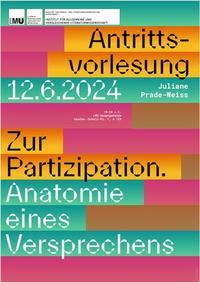 Antrittsvorlesung
Antrittsvorlesung
Zur Partizipation: Anatomie eines Versprechens
12. Juni 2024, 18-20 Uhr
LMU München, Geschwister-Scholl-Pl. 1, A 125
- Lecture Series Empire and Violence an der LMU München & der Universität Innsbruck
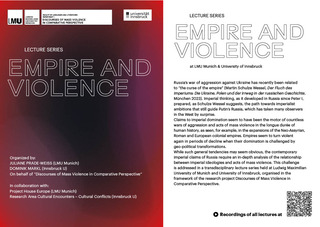
im Rahmen des interdisziplinären Projekts
Discourses of Mass Violence in Comparative Perspective - Interview: "Verstehen, wie die Täter ticken".
Rechtfertigungen von Massengewalt in Russlangs Krieg gegen die Ukraine
Butscha, Ukraine, am 11. April 2022 © IMAGO/ZUMA Wire
- zum LMU Center for Advanced Studies (CAS) Schwerpunkt
Order Contestation: The EU and Beyond
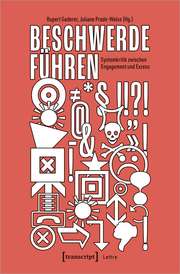
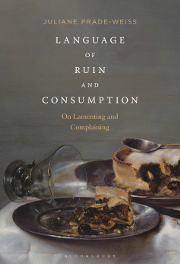 Juliane Prade-Weiss
Juliane Prade-Weiss
Language of Ruin and Consumption
On Lamenting and Complaining
London: Bloomsbury, 2020
Laments and complaints are among the most ancient poetical forms and ubiquitous in everyday speech. Understanding plaintive language, however, is often prevented by the resentment and fear it evokes: Lamenting and complaining seems pointless, irreconcilable, and destructive. Language of Ruin and Consumption: On Lamenting and Complaining examines Freud’s approaches to lamenting and complaining, the heart of psychoanalytic therapy and theory, and takes them as guideline for reading key works of the modern canon. The re-negotiation of older – ritual, dramatic, and juridical – forms in Rilke, Wittgenstein, Scholem, Benjamin, and Kafka puts plaintive language in the center of modern individuality and expounds a fundamental dimension of language neglected in theory: Reciprocity is at issue in plaintive language. Complaining and lamenting language is expounded as a crucial medium of psychic, social, and political (re-)formation due to its characteristic of stirring up, rather than settling, issues.
Objective of Language of Ruin and Consumption: On Lamenting and Complaining is to analyze a fundamental structure of language that dominates the discourses of Modern individuality and politics, but is neglected in theoretical approaches to language: Speech is not only by someone and on something, but also addressed to someone. Crucial to therapy, this axiom of psychoanalysis is no less decisive, and everything but commonplace, in understanding poetical texts and political discourse.


